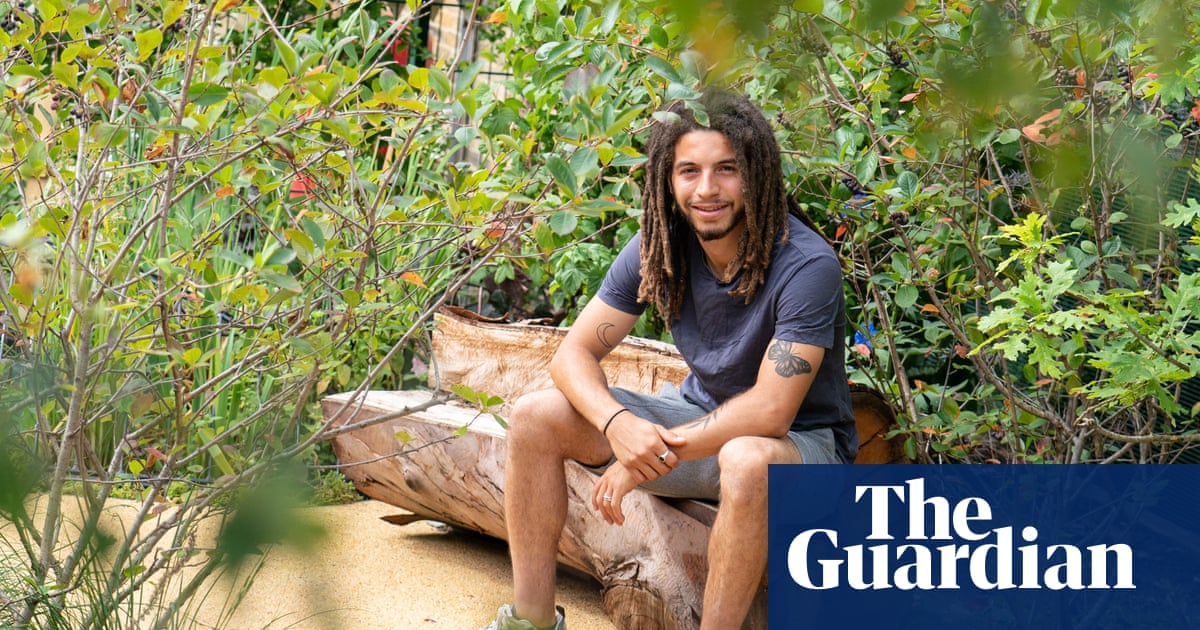A gardener and activist hired by the Royal Horticultural Society to help it reach out to younger and disadvantaged people has said its flagshipChelsea flower showcelebrated “exclusivity over equity” as he walked away from the role.
Tayshan Hayden-Smith, 28, was asked in 2022 to become the charity’s ambassador for young people and communities. But now he says that after three years working with the RHS, he has lost hope that it genuinely wants to become more accessible.
Announcing his resignation on Instagram this week, on the eve of the RHS’s biggest annual event, the Chelsea flower show, Hayden-Smith said: “I entered this role well intentioned and optimistic. On reflection, I now see that I was also naive.
“What I’ve come to learn is that representation without redistribution – of power, resources or decision-making – is not justice. And working within institutions that aren’t prepared to listen, adapt or truly share space only goes so far.”
He was particularly critical of the Chelsea flower show: “Year after year [the event] sets a precedent that celebrates spectacle over sustainability, exclusivity over equity.”
The Royal Horticultural Society is one of the world’s oldest horticultural societies, founded in 1804 as a forum for experimental ideas on gardening. It runs one of the UK’s national community gardening schemes, investing millions of pounds in projects and outreach around the country.
Its flagship event, the Chelsea flower show, has been held for more than a century in the grounds of the Royal hospital Chelsea, and is one of the world’s leading international horticultural events.
Hayden-Smith became known as a gardener in the aftermath of the catastrophic fire at Grenfell Tower, which loomed over his home, in 2017. While some in his community turned to art or music to express their grief at the 72 lives lost, he began tending a nearby plot of unused green space, which eventually grew to become the Grenfell Garden of Peace.
Encouraged by its success, he started a non-profit organisation, Grow2Know, to empower young and disadvantaged people through guerrilla gardening, reclaiming unused spaces in their nature-deprived inner-city community.
In 2022, just five years after picking up a trowel for the first time, Hayden-Smith was given funding to exhibit at the Chelsea flower show. But even then he expressed misgivings over its exclusivity.
“The five-day festival … has never felt like it was meant for the likes of me,” hewrote for the Guardian. Shortly after, the RHS asked Hayden-Smith to become one of its ambassadors.
Hayden-Smith told the Guardian that a particular flashpoint had emerged around this year’s Chelsea flower show. He said RHS bosses had rejected his proposals to open up the event, traditionally seen as a highbrow affair, to members of the communities living nearby.
Hayden-Smith lives and was raised in North Kensington, minutes away from the affluent neighbourhood where the show takes place, but where life expectancies can be as much as 20 years lower.
“The hope was that because of the locality, because of the disparity and inequality within the borough that Chelsea flower show has existed in for over 100 years, this was a unique opportunity to redistribute, to create access, to really be bold in engaging a wider community of people,” Hayden-Smith said.
“The response to that was, you know, we can’t justify supporting this specific community, despite it being on the doorstep of Chelsea flower show.”
A spokesperson for the RHS said: “The RHS supported Grow2Know on a project in the North Kensington borough by providing direct funding towards a community garden (£30,000).
“We also hosted and funded a fundraising event for the same community garden, asked local RHS members to support the project, and took part in a community engagement event with planting activities.
“The RHS delivers one of the biggest national community gardening initiatives, investing millions in school gardening, community outreach and grassroots projects around the whole country.
“We have a major partnership with the NHS delivering community wellbeing gardens and a partnership with the Natural History Museum supported by Department for Education to bring nature to schools across England.
“All gardens at RHS Chelsea flower show live on to be community green spaces in places like hospitals and schools around the UK. The world-famous event also raises vital funds for the RHS to do community outreach as part of its national programme of community work.”
In recent years, as well as showcasing the cutting edge garden design, the show has included a growing number of gardens focused on inclusivity, such as the ADHD foundation garden, which celebrated neurodiversity.
It has also newly tapped into container and balcony gardens, in the understanding that some do not have access to a large plot of land.
In 2022 Jason Williams, known as the Cloud Gardener, designed his balconyCirrus Gardento act, he said, “like a beacon of hope to anyone like myself who struggles with mental health and to show them that anything is possible”.
Williams has just confirmed that he will be part of the presenting line up for the show this year.
But Hayden-Smith says his efforts to get the charity to understand the lived experiences of people like him were met with resistance – and, on occasions, even hostility.
“There’s many different layers of discomfort that I felt in the three years as an ambassador at the RHS,” Hayden-Smith said. “No one wants to feel like an annoyance or a nuisance under the guise of trying to do something positive.”
He added: “It feels like there was kind of a need to protect Chelsea flower show as it is … I feel like it has become quite self-serving, and there’s this kind of status, and there’s this influence, and there’s this network that Chelsea flower show offers, that not many places do offer.”
